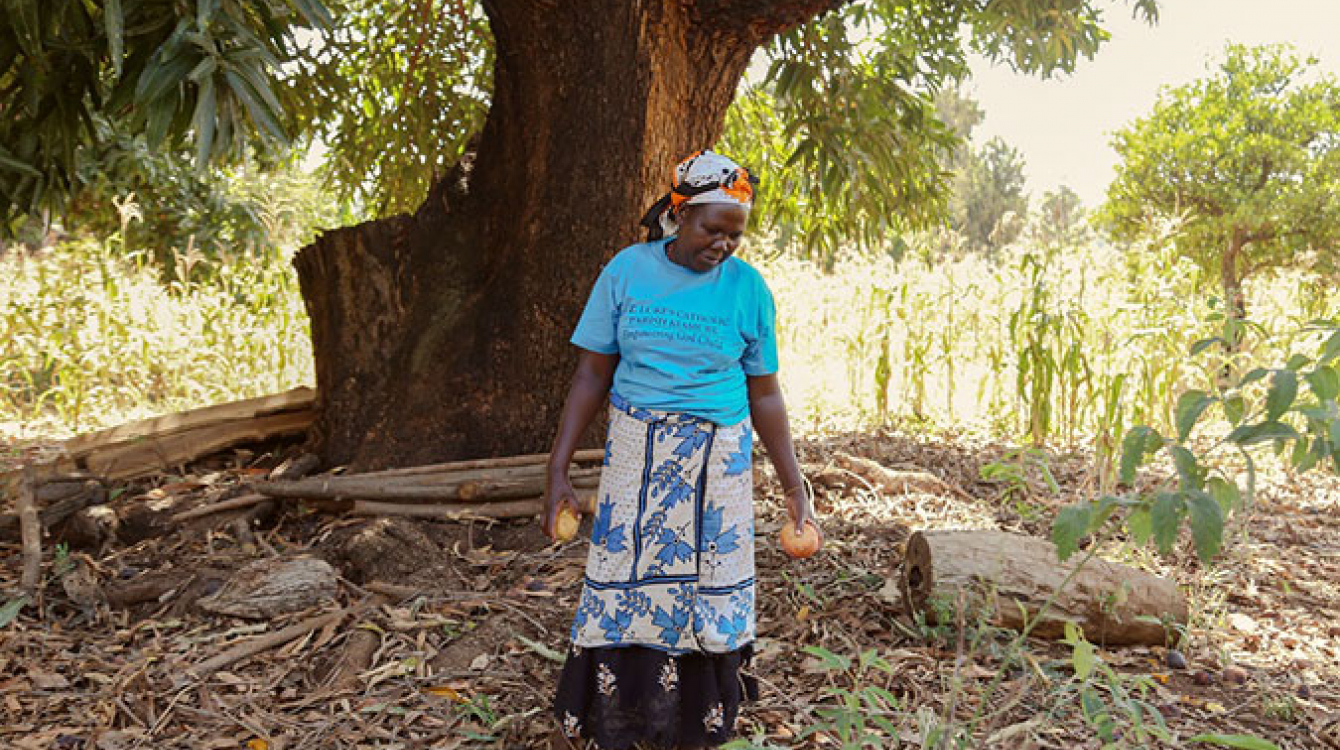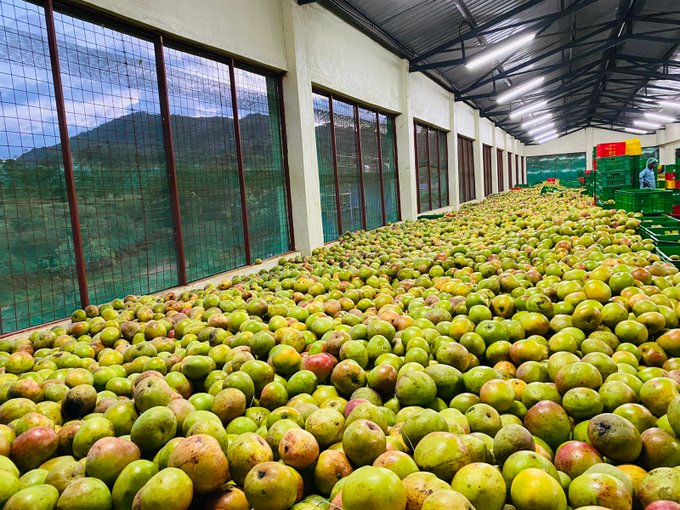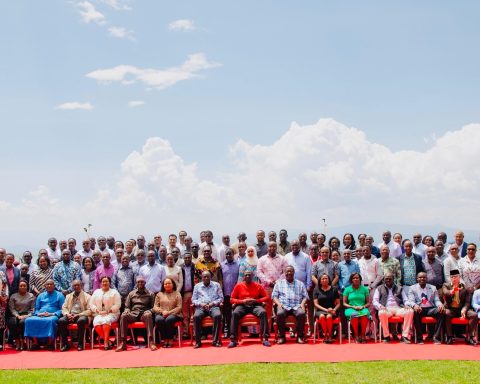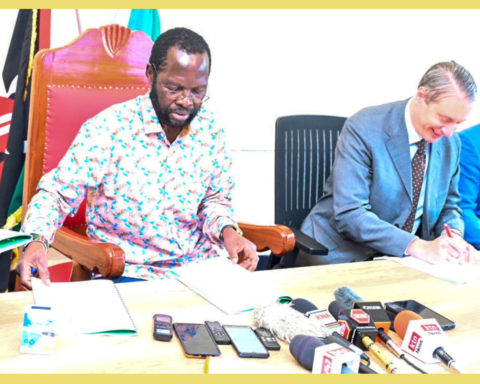This is the fruit plant in Makueni built in the last five years. It is a precious achievement for the people of Makueni and for our country.
It is an example of what our country can do with all that money from devolution and even the CDF.
When I first read about the Makueni governor Prof. Kibwana setting up a fruit processing plant in Makueni in 2017 I was hoping it could work. I happen to know Prof. Kibwana from our days working to end the one-party state and the stormy Constitutional Conference at Bomas in Nairobi in 2003.
But my love for Prof. Kibwana’s mango juice processing project came from another source. My family grows mangoes in our farm. Which now is a municipal property in my town.
We started with traditional mangoes which my father and mother planted in the 1970s when I was in high school.
Those mango trees are now huge behemoths in our land.
Then my nephew who actually runs our farm and home facility started bringing in newly pruned mangoes to the farm in the 1990s after he met a mango fruit nursery farmer and they worked very well together.
One thing of note here is that the coordinator of the fruit farming in my home town was a guy employed as an Agricultural worker in my area and he was employed by the national government at the time.
He tells the farmers what they need to do in all plants they want, how to do it, and how much it will cost them to do it. That is a big part of rural agriculture in Kenya. Those jobs are now gone because the national government doesn’t want to pay them and the county governments have no clue even in what they do.
So I have always loved mangoes and fruits.
Passion fruit is another one my parents and our family later have loved to grow. Once they grow you don’t have to worry about them it is just tons of passion fruit every day.
But one thing used to get me really mad about fruit juice in Kenya. We grow so much fruit and yet we are confined to drinking that ugly fake juice with fruit tastes imposed on them.
The damn thing is tasteless and it just leaves all kinds of colours in your mouth.
I used to ask why is it that we cannot bottle our own natural juices with all the fantastic we grow in our country.
What made me even angrier was that on my way from Kisumu to my home I passed through several markets, Ndori, being the most notorious where the fruits specifically the mangoes are so plentiful they are just rotting and the sellers will give you a bundle for a few cents just to get them out of their hands.
Can you believe how better off we would be if we could process those mangoes and other fruits into real juice and other value-added products? We would grow the economy, have better juice and make our agriculture so much better.
That is why I like what Prof. Kibwana has done in Makueni. He didn’t go for imaginary and empty bottoms-up or down slogans. That is what our country needs now. Real leaders with real solutions for Kenyans. We are going there no doubt about that.
Read: Ruto’s war on rich Kikuyus could backfire very badly in 2022
The governor faced the real issues, put the county money to sort things out and the results speak for themselves. It has just been astonishing.

This is an important development we have to pursue for the country.
“The main challenge that we have here as farmers is the rotting of mangoes on the trees,” explains Kawira. “This is because of the overabundance of mangoes and lack of technologies to help us produce other products from the mangoes that we harvest.”
Like many other women farmers in the area, Kawira has long days of work and many responsibilities. The possibility of supplemental income from mangoes brightens up her face.
The project, in collaboration with Jomo Kenyatta University of Agriculture and Technology (JKUAT) and Stockholm Environment Institute (SEI), and Techno Serve, and with funding from the Rockefeller Foundation, has trained 100 farmers, half of them women, from Meru, Makueni and Tana River counties, in fruit processing, packaging, and branding.
Recently, the project convened 30 farmers’ groups in Meru for vigorous competition and awarded a multi-food processing machine to the Chaaria Group. Representation of women in the group and its leadership, availability of water and electricity to operate the machine, as well as proof of registration of their collective, were among the criteria used to select the winner.
“We are so happy that we won the machine, we are sure that if we carry on with it, our living standards will improve,” said Marisela Mwiti, a member of the Chaaria Group.
For the other participating groups, the experience was valuable as they learned new skills, and some are planning to set up collaborations among themselves to share a machine. The local governments have also promised to support farmers’ groups in acquiring such machines.
“I am hopeful that with this technology, mango losses will be a thing of the past,” said Fridah Kawira, who is part of the Kathangari Mango Growers group. “A lot has improved in my life since joining the group,” she said, referring to the self-help group that she is part of. “I have managed to buy a cow, which produces milk for sale and consumption by my family. The money I make is used to pay my children’s school fees. I can honestly say that mangoes have helped to educate my children!”
For many of the women farmers, learning how to process, preserve and market various products from fresh mangoes was an eye-opener. Stella Musyoka, a 48-year-old farmer from Kyeni Kya Yathonza Group in Makueni said: “Through this training, I have learned how to make jams and juices. It will be easier for me to introduce yogurt since I have both the mangoes and cows that produce milk for my family. I will be able to get the required capital through the table banking initiative available in our group.”
“Table banking” refers to a group funding strategy commonly used by small savings and loans groups, where the group contributes their savings to a common pool of funds, which can then be used to give out small loans to fund specific projects.
“Kenya has a significant proportion of women engaged in agriculture. While they work as hard as any male farmer, they often lack access to financial and technological resources that can improve their livelihoods. This is why UN Women has partnered with the universities to make technology accessible for women farmers,” said Fatmata Sessay, UN Women Regional Policy Advisor on Climate-Smart Agriculture.
As Kenya’s mango production continues to grow, access to existing and new technology is critical to maintain and improve productivity. UN Women is fostering collaboration with universities, research institutions, and private sector partners in Kenya to make sure that women farmers are not left behind as the technologies evolve.
And this is just about how we cannot use mangoes that we grow everywhere in the country.
What other fruits do we grow?
Adongo Ogony is a Human Rights Activist and a Writer who lives in Toronto, Canada











